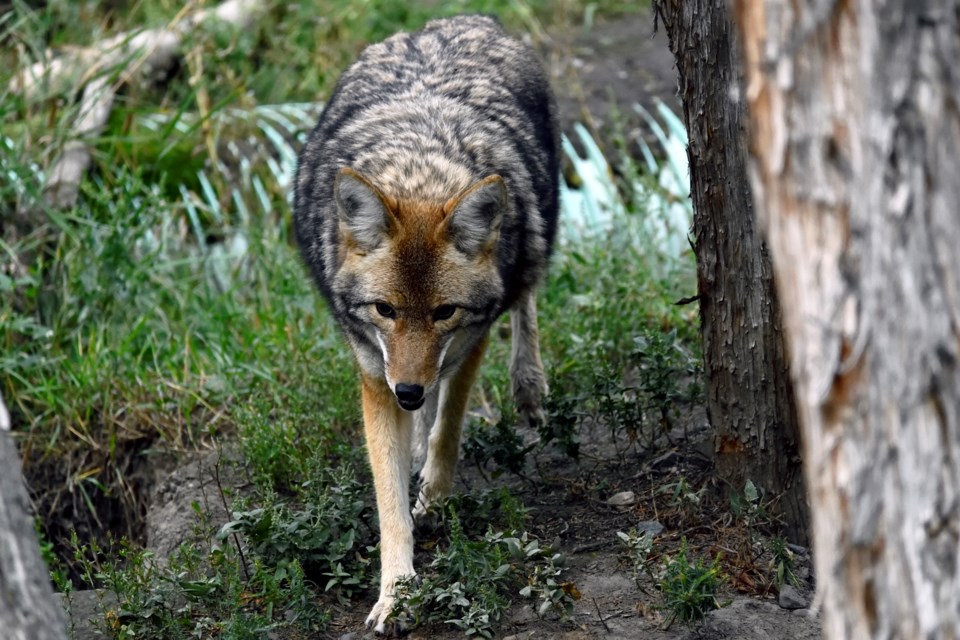Don't feed coyotes or any wild animal by hand or otherwise. That is just some of the advice from the Sea to Sky department of the B.C. Conservation Officer Service (COS).
There have been 10 concerning coyote encounters in Squamish reported to the conservation service since January.
According to Calvin Rochon, a new Squamish wildlife safety response officer, the reports range from seeing a coyote in an urban setting in the daytime, which is somewhat unusual behaviour for the animal, to cats being preyed upon.
Other reports include some potentially aggressive coyote behaviour being shown, such as a coyote following a person with a pet, and a coyote being curious and interacting and playing with a blow-up swimming pool, he added.
While there may have been other instances that weren't reported to the COS, there were two local coyote and cat conflicts that the service was alerted to.
"Household cats, when they're let outside ... they're running that risk of being preyed upon by wild animals," Rochon cautioned.
Other reports in the corridor of pet and coyote conflicts have recently made headlines.
Metro Vancouver has changed the popular North Vancouver Lynn Headwaters Connector Trail to be an on-leash trail until further notice due to an attack on a dog by coyotes. Coyote mothers with young pups were in the area, according to the federation of municipalities.
On June 23, a small dog was attacked by a pair of coyotes in Whistler. In that case, a miniature dachshund was “snatched” by the side of the house right after the dog jumped out of the car.
Rochon notes that coyotes are naturally curious in nature.
"They're timid. They usually runaway when challenged, but they start posing a risk to people when they lose their natural awareness and natural fear of humans and become comfortable around humans," he said. "Just like other wildlife, such as bears, this is usually most often a result of direct or indirect feeding by humans, such as leaving garbage out or feeding it by hand, which is an offence under Section 33.1 of the Wildlife Act."
Rochon said recently, the COS had to ticket someone in Squamish for feeding a coyote.
What to do?
Rochon said folks should carry a coyote deterrent with them.
"It could be something as easy as rocks and sticks or a walking stick, or up to a pepper spray, which has been seen to be effective. You can actually get dog mace at Canadian Tire."
As with most wildlife, if a coyote approaches, make yourself look as large as possible.
"Make yourself big and scary. Wave your arms, throw objects at the coyote or animal. Shout at the coyote in a loud and aggressive voice, be affirmative."
Rochon cautioned never to turn your back or run, as that triggers the chase instinct in the animal.
As he noted before, outdoor cats are at risk from coyotes and other wildlife.
Dogs should be on a leash as an off-leash dog can attract and aggravate coyotes, and other wildlife, such as bears.
Reporting concerning sightings and any wildlife conflicts to the COS is important.
The Report All Poachers and Polluters (RAPP) hotline is a toll-free tip line available at all times.
Call 1-877-952-7277 (RAPP) or #7277 on the TELUS Mobility Network. If the situation is not an emergency, report the incident online.
~With a file from Brent Richter/North Shore News and Brandon Barrett/Pique Newsmagazine



.png;w=120;h=80;mode=crop)


